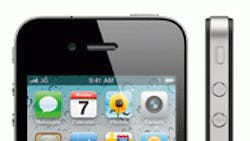What exactly does a supply chain look like, and how do you know a good one when you see one? For the past several years, analyst firm AMR Research has attempted to rank the most successful supply chains in the world, balancing out the opinions of supply chain experts and AMR analysts with solid metrics (inventory turns, return on assets and revenue growth). Taking all of those factors into account, AMR then produces an annual list of the top supply chains, and for the third year in a row, Apple took the No. 1 slot.
"Many companies focus primarily on supply chain execution," says Debra Hofman, research vice president at AMR. "With ever-increasing unpredictability of demand, leaders also focus on improving their ability to sense changes and patterns in their environment -- changes in demand, design, supplier risk and more -- earlier than their competition."
Another company new to the rankings in 2010 is Microsoft, which used to be excluded (as other software companies are) because of its lack of a "traditional, physical product supply chain." AMR softened its stance against software, at least in this case, due to Microsoft's popular Xbox gaming device, as well as peripherals and shrink-wrapped software products.
Since the methodology for compiling the rankings relies heavily on input from AMR analysts as well as supply chain experts, there's a margin of error involved when it comes to the impact of negative publicity. Case in point: A year ago, Toyota was ranked at No. 10, largely due to its status as a lean pioneer as well as its strong supplier relationships. In 2010, though, with its reputation severely pummeled by Congressional investigations, millions of recalls and a perception that some of its cars are unsafe to drive, the automaker plummeted to No. 49 on the AMR list.
See Also:
As the Economy Recovers, So Do Transportation Rates
About the Author
Dave Blanchard
Senior Director of Content
Focus: Supply Chain
Call: (941) 208-4370
Follow on Twitter @SupplyChainDave
During his career Dave Blanchard has led the editorial management of many of Endeavor Business Media's best-known brands, including IndustryWeek, EHS Today, Material Handling & Logistics, Logistics Today, Supply Chain Technology News, and Business Finance. He also serves as senior content director of the annual Safety Leadership Conference. With over 30 years of B2B media experience, Dave literally wrote the book on supply chain management, Supply Chain Management Best Practices (John Wiley & Sons, 2010), which has been translated into several languages and is currently in its second edition. He is a frequent speaker and moderator at major trade shows and conferences, and has won numerous awards for writing and editing. He is a voting member of the jury of the Logistics Hall of Fame, and is a graduate of Northern Illinois University.
